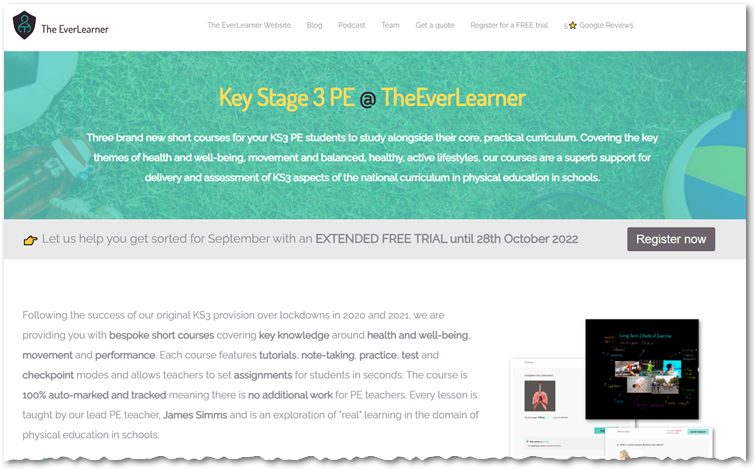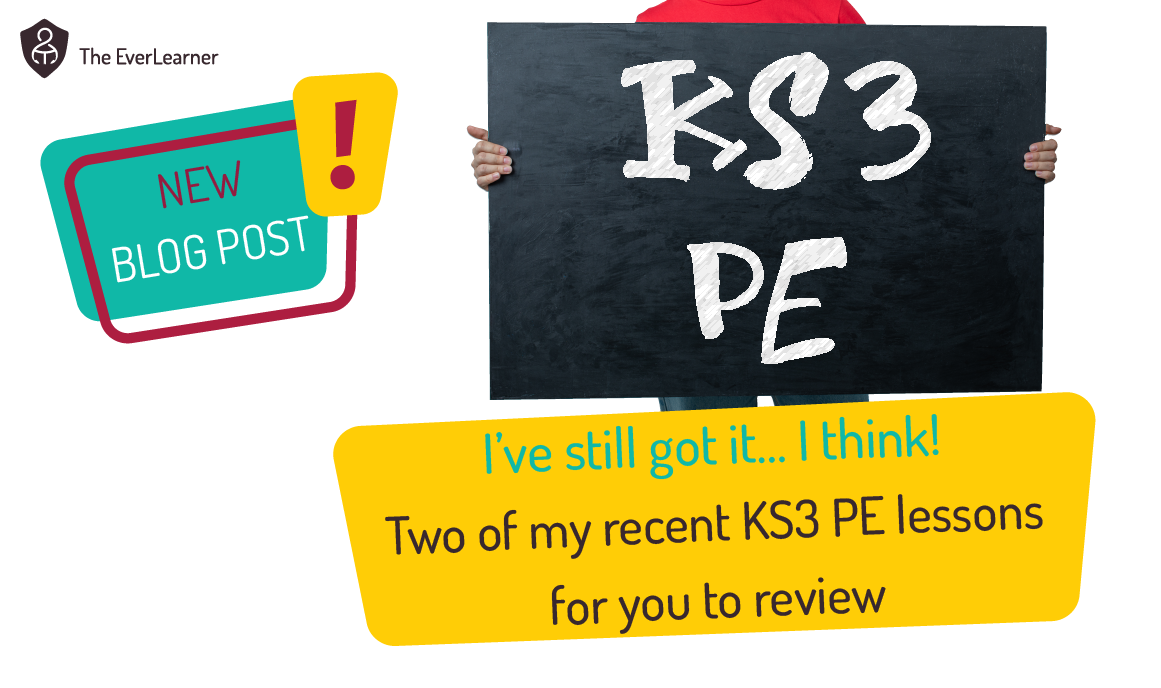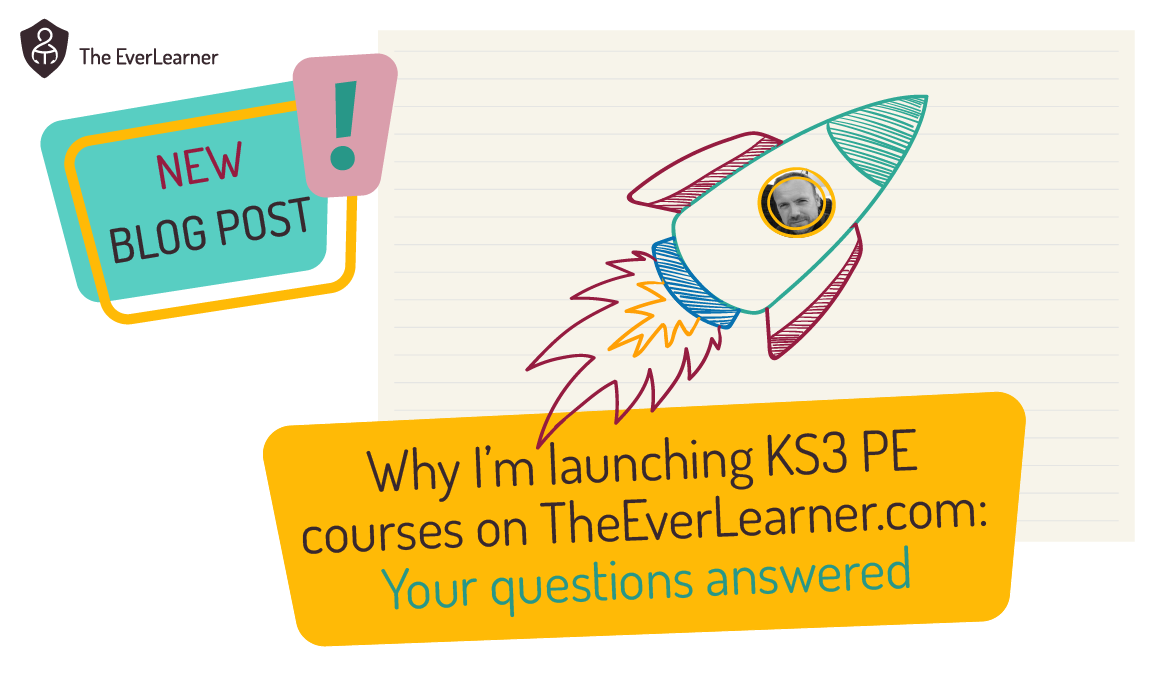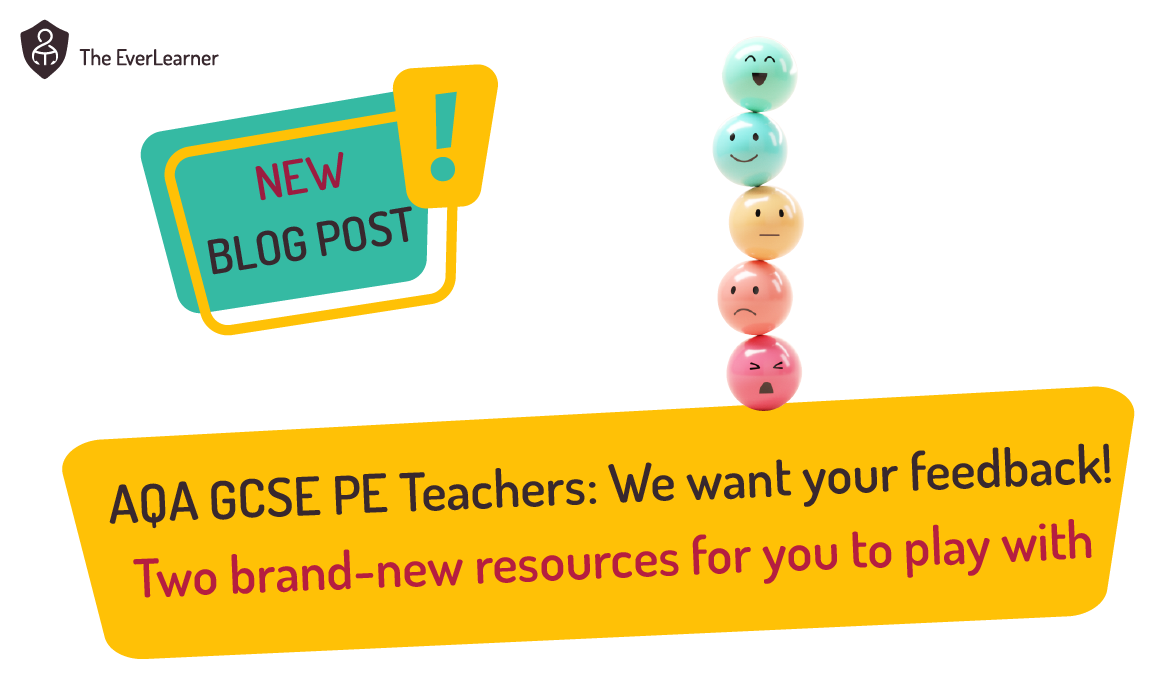Is it Time for Homework in KS3 Physical Education?
Core PE in secondary schools has very rarely been associated with the experience of home learning (or homework). PE lessons are almost universally homed within the defined curriculum, with extra-curricular provision providing further extension and applied learning in practical performance. Practical learning in PE has inherent value to the student. Perhaps the greatest value of the physical activity completed in PE lessons is that it may motivate or inform a young person to participate in a greater amount of physical activity optionally, now and in the future.
So, if the pinnacle achievement of the core PE experience is to stimulate more physical activity in young people and throughout life, then the question of what associated learning might have a complementary impact is a reasonable one. Teachers in subjects like maths, geography and music are perfectly comfortable with the notion that homework in their domain tends to increase the skill level of the learner and that, presumably, this improved skill will stimulate more study of their domain in the future. I believe that this can be the case in physical education too.
Therefore, I am arguing that the core principle of extended learning in KS3 PE is that it tends to increase participation in physical activity over time. Whilst other benefits will also occur, such as a wider definition of success in PE as well as better preparation for KS4 PE courses and beyond, the primary aim needs to be the stimulation of more physical activity.
As a PE teacher, you may find that the suggestion of creating, setting and marking homework in core PE makes you queasy. The idea that, as well as delivering practical PE, managing clubs, completing competitions plus delivering and assessing GCSE, BTEC or A-level PE, you need to provide a relevant homework experience for all students in core PE will likely seem a bit much. Therefore, we can make a reasonable summary that any new homework experiences in PE must meet this principle:
But what about the quality and the relevance of the resources? How can we ensure that every school is not forced into creating experiences that are wildly varying in the content and quality? I strongly believe that it is possible and desirable for KS3 PE resources to be centrally created and robustly quality assured. Beyond this, I also believe that the KS3 PE homework offer must have a wide degree of flexibility and a curriculum with sufficient components for PE teachers to select materials that are specifically relevant to them. For example, one PE department may have strong value in the development of nutritional and dietary knowledge, whilst another may have more interest in learning around fitness and training. PE teachers must be provided with the resources that allow them to tailor learning in their specific context. Therefore, we can also summarise that any new homework experiences in PE must meet these two principles:
But how can we know whether the new homework experiences are actually impacting on a student’s tendency to be active? If the aim of homework is to stimulate increasing levels of physical activity, is this actually happening? Furthermore, how can a PE department implement this additional learning without sacrificing the core practical time that students benefit from in KS3 PE? Therefore, we can also summarise that any new homework experiences in PE must meet these two principles:
So, here are our six principles:
- Homework at KS3 PE aims to increase physical activity participation over time.
- Homework experiences at KS3 PE must create zero additional work for the PE teacher including the building of new resources.
- Homework experiences at KS3 PE must be world-class for all learners from day one.
- Homework experiences at KS3 PE must be chosen as context-specific content from a wide range of materials.
- Homework experiences at KS3 PE must provide live data that can be compared to activity data now and in the future and this data must be provided to the teacher, not by the teacher.
- Homework experiences at KS3 PE must not be used to replace practical units with classroom-based learning.
So, if we step back from these six principles, we can summarise that introducing core PE home learning (if delivered following these principles) would provide us with increased learning with no additional teacher work, it would show us whether the additional learning was correlating to greater amounts of physical activity or not without jeopardising practical lesson time and it would be context-specific based on the wide array of material available. Of course, if it is not, we need to change that home learning or, in the worst case, remove it altogether.
What I am aiming to say to the PE sector is that, with the clearest of goals, we have the potential to both factorially broaden our core PE offer with no additional work for any teachers and know the impact of that offer. Here is my proposal:
- I will personally deliver a sample KS3 homework curriculum by September 2022. This will feature three courses that PE departments can use in the immediate term.
- I will consult with a panel of PE teachers, school leaders and students about the nature of the core PE offer and establish the exact requirements of departments.
- I will design a core PE curriculum homework offer covering in the region of ten courses and share it with the sector for feedback.
- Our core PE offer will be made available for extended free usage to the entire sector before any fees need to be considered.
- If there is sufficient take-up of the core PE home study offer, I will build further courses to give a greater choice to centres (see below).
So, this is my proposal. I would value your feedback. I anticipate that colleagues will be interested to know what the content might be. I am cautious to announce any exact intent before I consult, but my vision is to have the following provision:
KS3 Physical Education - Live from September 2022
Diet, Nutrition and Health: A guide to healthy eating and drinking
A balanced, healthy diet
Balanced diet
- Energy requirements
- What is a balanced diet?
Food groups and their impact on health
- Carbohydrates
- Proteins
- Fats
- Vitamins
- Minerals
- Fibre
- Water
Unhealthy diets
Under and over-eating
- BMI
- Obesity
- Eating disorders
Other issues
- Alcohol consumption
Adapted diets
Adapting calories, fats and carbs
- Calorie counting
- Reducing fat diets
- Keto diets
Vegetarianism and veganism
- Types of vegetarianism and their impact
- Veganism
Knowing Your Body Part 1: Body Systems and Health
Health and my body
Health
- What is 'good health'?
- The effect of exercise on health
Body systems
- Body systems and health
- The brain and the nervous system
- The respiratory system
- The CV system
- The skeletal system
- The muscular system
- The digestive system
How I move
Energy for movement
- Respiration
- Aerobic energy
- Anaerobic energy
Contracting muscles
- How muscles contract
- Role the tendons
Skeletal Movement
- Movement at joints (Part 1)
- Movement at joints (Part 2)
Knowing Your Body Part 2: Body Systems and Exercise
What happens when I exercise?
Body systems
- CV response to exercise
- Respiratory response to exercise
- Muscular response to exercise
- Skeletal response to exercise
Injuries
- Acute injuries
- Chronic injuries
- Injury rehabilitation
What happens after I exercise?
The recover process
- Recovery
- Speeding up recovery
Long term adaptations
- CV adaptations
- Respiratory adaptations
- Muscular adaptations
- Skeletal adaptations
Exercising in different conditions
Exercising in the heat
- Exercising in the heat
Exercising in the cold
- Exercising in the cold
Of course, this is not the end of the journey. Probable/possible courses available from September 2023 are detailed below. These will be built or not based on sector feedback:
- A Healthy Mind
- Why Movement Matters: Being Physically Active throughout Life
- The Teenager’s Body: Puberty and Maturing
- Movement in Context: The UK
- Movement in Context: The World
- Self-identity: Who am I?
- Movement and the Mind: An Introduction to Sport & Exercise Psychology
- Movement in Numbers: Using Maths Skills to Analyse Movement
- The Basics of Fitness 1: How to Improve, Stamina, Strength and Flexibility
- The Basics of Fitness 2: How to Improve Speed, Agility and Reaction Time
I have also considered many other potential courses. Opportunities like “The outdoors”, “Mechanics of movement: The basics” but I will delay any plans to formally build any units until I have consulted with colleagues and students. If you are interested in using the initial KS3 PE courses from September 2022 or if you would like to be part of our sector feedback group, please visit our KS3 page for more information:
Current customers can add KS3 PE courses to their groups in the normal way from September 2022.
Thank you for reading. Please, consider making a comment.
%20Text%20(Violet).png)



